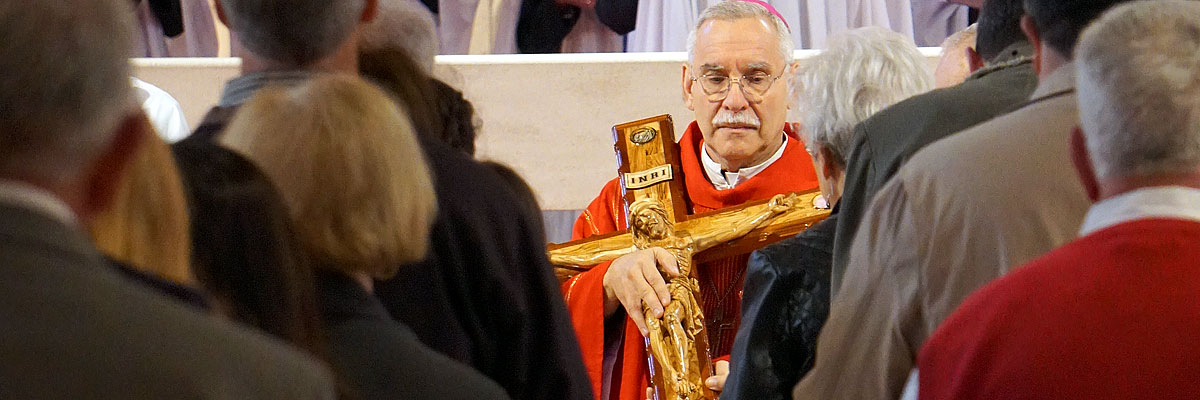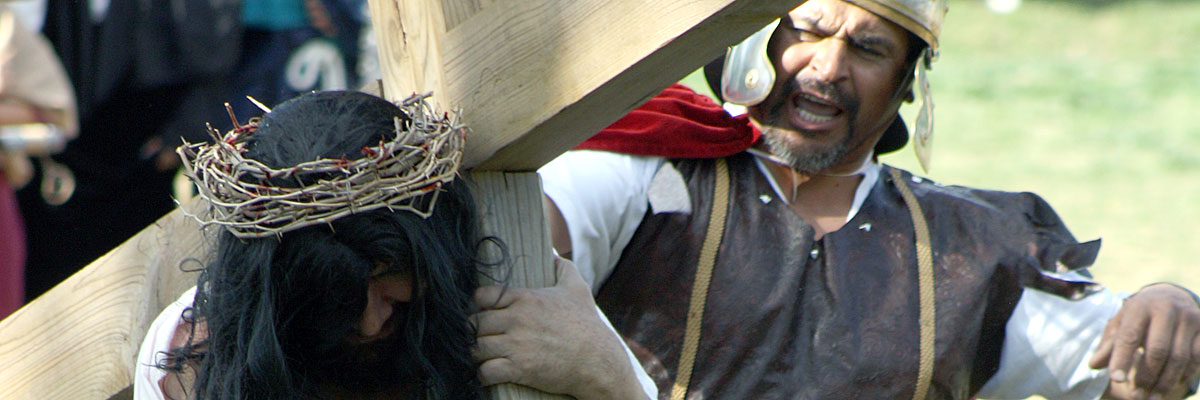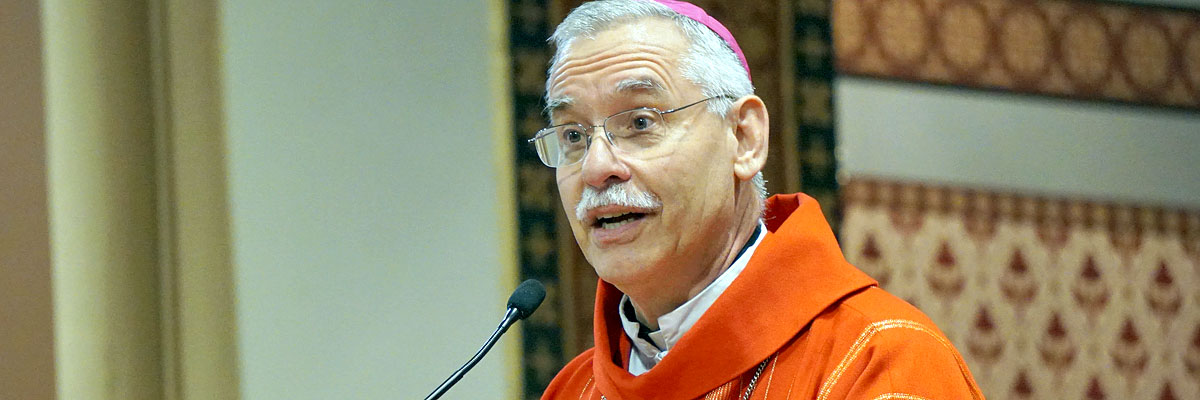Official Website of the
Catholic Diocese of Little Rock
Easter Vigil 2014
Published: April 18, 2014
Bishop Anthony B. Taylor preached the following homily at the Cathedral of St. Andrew in Little Rock on Holy Saturday, April 19, 2014.
Download MP3 file to your device

Bishop Taylor
In line with Pope Francis' recent call to raise the profile of women in the Church, and others whose voice is not sufficiently heard in the way that ecclesial life is currently structured, I would like to draw your attention to the key role of the women of Good Friday and Easter Sunday in God's plan for our salvation. They were there constantly, sometimes prominently and sometimes behind the scenes — most notably when all the men but John had given up hope, given in to fear and fled.
But they remained with Jesus all the way to Calvary and Catholic piety remembers three of Jesus' interactions with women along the way of the cross: with his Blessed Mother, with a courageous woman named Veronica who wiped his face, and with the women of Jerusalem who had come out to comfort him. On Palm Sunday Matthew told us that at Calvary "there were many women there ... who had followed Jesus from Galilee, ministering to him. Among them were Mary Magdalene and Mary the mother of James and Joseph, and the mother of the sons of Zebedee."
And once Jesus was buried, "Mary Magdalene and the other Mary remained sitting there, facing the tomb." On Good Friday the Gospel of John added that Jesus' mother, his mother's sister, Mary the wife of Clopas and Mary Magdalene were with him to the end. And that when Jesus saw his mother and John standing by the cross, "he said to his mother: 'Woman, behold your son.' And then he said to the disciple: 'Behold, your mother.' And from that hour the disciple took her into his home."
Jesus continues to opt preferentially for those who lack standing in human society — just has he had always done throughout his public ministry
This sets the stage for what we celebrate today. The women who had been with Jesus on Good Friday returned to the tomb Sunday morning and found it empty, and some of these women were privileged to be the first actually to see the risen Lord. In today's Gospel Jesus met them on their way back to deliver the angel's message about Jesus' resurrection to the still-absent men: "They approached, embraced his feet, and did him homage. Then Jesus said to them, 'Do not be afraid. God tell my brothers (the men) to go to Galilee, and there they will see me."
One of the most striking features of the role of the women throughout the Passion and Resurrection narratives is that though they were the ones who were present, their testimony would not have had much weight in that patriarchal culture, and no weight in a court of law, because they were "just" women. But Jesus continues to opt preferentially for those who lack standing in human society — just has he had always done throughout his public ministry.
And so it is to these humble, courageous, faithful, probably uneducated women that Jesus first entrusts news of the most important event in all of human history. This makes it obvious that as far as Jesus was concerned, no special qualifications were required to give witness to him, or for that testimony to matter. What this means, my brothers and sisters, is that regardless of your qualifications or perceived lack thereof, your testimony matters too. If you've experienced the life-changing mercy and forgiveness of Jesus, you've got something to share.
Pope Francis emphasizes this in his recent apostolic exhortation Evangelii Gaudium, where he reminds us that for every one of us the life of faith begins with a personal encounter with the mercy and forgiveness of Jesus Christ — won for us through these Easter mysteries. We are initiated into this new life through the Sacrament of baptism, which produces in us an irrepressible passion to share this gift of God's love with others.
And then we are empowered and enlightened by the Holy Spirit in the sacrament of confirmation — again, apart from any specific training — which enables us to be bold and creative in living and proclaiming this Good News of rebirth, of a fresh beginning with the slate wiped clean, with special concern for the weakest and most broken among us.






